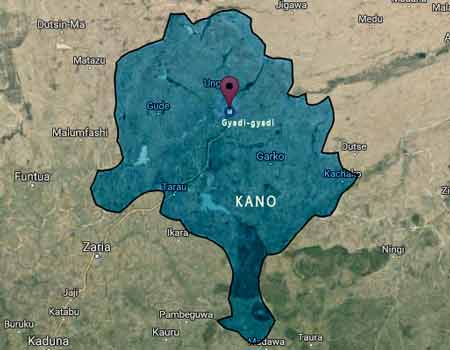The logic isn’t far-fetched. In Nigeria, a simple show of service courtesy of taxpayers’ money is often erroneously mistaken for a lord-to-serf favour. Words like constituency projects and human empowerment, which are synonymous with Nigeria’s shallow definition of dividends of democracy, come with a burden of ignorance. The tragic consequence of this is that the fulcrum of sustainable national development and growth of our country is habitually impeded. It is no longer a new story that Governor Abdullahi Umar Ganduje did a “Mai Shayi Empowerment” project recently in Kano State. The executive governor, in an elaborate ceremony held at the Open Theatre, Government House, said his government had empowered 5, 200 tea sellers called ‘Mai Shayi” with packages that include noodles, cocoa beverage, liquid and powdered milk, tea, crates of eggs, nylon and cups, baskets, brown and white sugar, spaghetti and bread, all gulping a total amount of N208 million. He said: “We are empowering 5,200 tea sellers. We are empowering them because we want to increase their economic well-being. We are empowering you to improve the economy of Kano.” While the 67-year old governor should be credited for not being extravagant (the so-called empowerment didn’t go for billions of naira), the logic behind the empowerment which is probably part of Ganduje’s G-MEEP is awkward and ugly. It’s a complete misplaced priority in a state in a dire need of sustainable human empowerment and sophisticated mental re-awakening.
Eighty per cent of Kano youths are threatened by the monumental challenges of drug abuse, prostitution, heavy smoking, gambling, abject poverty and moral decadence. If Ganduje’s job-providing mechanism is setting a tea venture for 5,200 beneficiaries who may not even have a proper orientation on how a business can be sustained, then the governor has displayed a poor understanding of his people’s plight and priorities. Before him, the governor of Benue State, Samuel Ortom, was alleged to have distributed wheel-barrows bearing his name, while Masari was busy dashing-out goats to some secondary school female students as part of the empowerment programme in a state where reading culture and literacy are at the brink of death. However, Ortom disowned the ‘wheel-barrows’ project in the wake of public criticism and condemnation.
Without any iota of doubt, the problem of North is the problem of the country. This is what both Ganduje and Masari should know. If they are sincerely passionate about the debacle of unemployment and poverty amelioration through viable empowerment scheme, they need to make a paradigm shift from poor human development projects to better ones through practical approaches. And one of these is the Vocational Development System approach. This will allow the teeming youths of Kano and Katsina –both core Hausa-Fulani states –to attain expertise in certain aptitudes. Vocational trainings like tile-setting, auto-mobile engineering, fashion designing, tailoring and aluminum fabrication will not only tackle the menace of unemployment which has put the future of an average Kano and Katsina youth in jeopardy, but will also make them self-dependent financially.
Toheeb writes in via donrabtob@gmail.com






